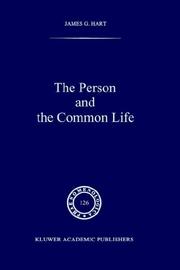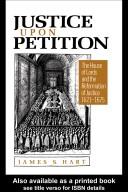| Listing 1 - 10 of 88 | << page >> |
Sort by
|
Book
Year: 1925 Volume: ser. 43, no. 3 Publisher: Baltimore : Johns Hopkins Press,
Abstract | Keywords | Export | Availability | Bookmark
 Loading...
Loading...Choose an application
- Reference Manager
- EndNote
- RefWorks (Direct export to RefWorks)
Book
Year: 1652 Publisher: London: : Printed for R.M. and are to be sold by Samuel Man ...,
Abstract | Keywords | Export | Availability | Bookmark
 Loading...
Loading...Choose an application
- Reference Manager
- EndNote
- RefWorks (Direct export to RefWorks)
eebo-0166
Urine --- Medicine --- Examination
Book
Year: 1633 Publisher: London : Printed by Iohn Beale, for Robert Allot, and are to be sold at his shop at the signe of the blacke Beare in Pauls Church-yard,
Abstract | Keywords | Export | Availability | Bookmark
 Loading...
Loading...Choose an application
- Reference Manager
- EndNote
- RefWorks (Direct export to RefWorks)
eebo-0113
Book
Year: 1948 Publisher: London : MacMillan,
Abstract | Keywords | Export | Availability | Bookmark
 Loading...
Loading...Choose an application
- Reference Manager
- EndNote
- RefWorks (Direct export to RefWorks)
ETATS-UNIS --- INSTITUTIONS POLITIQUES --- ETATS-UNIS --- INSTITUTIONS POLITIQUES

ISBN: 0792317246 9048141575 9401579911 9780792317241 Year: 1992 Volume: 126 Publisher: Dordrecht ; Norwell, MA : Kluwer,
Abstract | Keywords | Export | Availability | Bookmark
 Loading...
Loading...Choose an application
- Reference Manager
- EndNote
- RefWorks (Direct export to RefWorks)
What follows attempts to synthesize Husserl's social ethics and to integrate the themes of this topic into his larger philosophical concerns. Chapter I proceeds with the hypothesis that Husser! believed that all of life could be examined and lived by the transcendental phenomenologist, and therefore action was not something which one did isolated from one's commitment to being philosophical within the noetic-noematic field. Therefore besides attempting to be clear about the meaning of the reduction it relates the reduction to ethical life. Chapter II shows that the agent, properly understood, i. e. , the person, is a moral theme, indeed, reflection on the person involves an ethical reduction which leads into the essentials of moral categoriality, the topic of Chapter IV. Chapter III mediates the transcendental ego, individual person, and the social matrix by showing how the common life comes about and what the constitutive processes and ingredients of this life are. It also shows how the foundations of this life are imbued with themes which adumbrate moral categoriality discussed in Chapter IV. The final Chapters, V and VI, articulate the communitarian ideal, "the godly person of a higher order," emergent in Chapters II, III and IV, in terms of social-political and theological specifications of what this "godly" life looks like.
Social ethics --- Husserl, Edmund --- Morale sociale --- Sociale ethiek --- Husserl, Edmund, --- Ethics --- Morale --- Social ethics. --- Academic collection --- Social problems --- Sociology --- -Ethics --- -Husserl, Edmund --- Husserl, Edmond --- Ethics. --- Husserl (edmund), philosophe allemand, 1859-1938
Book
ISBN: 0195030745 9780195030747 Year: 1983 Publisher: New York Oxford University Press
Abstract | Keywords | Export | Availability | Bookmark
 Loading...
Loading...Choose an application
- Reference Manager
- EndNote
- RefWorks (Direct export to RefWorks)
American literature --- Littérature américaine --- Dictionaries. --- Bio-bibliography. --- Dictionnaires anglais --- Biobibliographie --- Bio-bibliography --- Dictionaries --- Littérature américaine
Book
ISBN: 0044453701 Year: 1990 Publisher: London Boston Wellington Unwin Hyman
Abstract | Keywords | Export | Availability | Bookmark
 Loading...
Loading...Choose an application
- Reference Manager
- EndNote
- RefWorks (Direct export to RefWorks)
581.184 --- Plants --- #WPLT:dd.prof.J.Vendrig --- Movements of plants --- Irritability --- Plant mechanics --- Pulvinus --- Tropisms. Directional responses. Geotropism. Phototropism. Thermotropism etc. --- Irritability and movements. --- Movements --- 581.184 Tropisms. Directional responses. Geotropism. Phototropism. Thermotropism etc. --- Irritability and movements --- Tropisms. Directional responses. Geotropism. Phototropism. Thermotropism etc

ISBN: 0049422022 Year: 1991 Publisher: London New York HarperCollinsAcademic
Abstract | Keywords | Export | Availability | Bookmark
 Loading...
Loading...Choose an application
- Reference Manager
- EndNote
- RefWorks (Direct export to RefWorks)
34 <09> <41> --- Courts --- -Justice, Administration of --- -Administration of justice --- Justice, Administration of --- Law --- Judiciary --- Dispute resolution (Law) --- Judicial districts --- Procedure (Law) --- Judicial power --- Jurisdiction --- Rechtsgeschiedenis --(algemeen)--Verenigd Koninkrijk van Groot-Brittannië en Noord-Ierland --- History --- Law and legislation --- Great Britain. Parliament. House of Lords --- -History --- -Rechtsgeschiedenis --(algemeen)--Verenigd Koninkrijk van Groot-Brittannië en Noord-Ierland --- 34 <09> <41> Rechtsgeschiedenis --(algemeen)--Verenigd Koninkrijk van Groot-Brittannië en Noord-Ierland --- Great Britain --- Justice [Administration of ] --- Courts - Great Britain - History. --- Justice, Administration of - Great Britain - History. --- Great Britain. Parliament House of Lords - History. --- -34 <09> <41> Rechtsgeschiedenis --(algemeen)--Verenigd Koninkrijk van Groot-Brittannië en Noord-Ierland --- Administration of justice
Book
ISBN: 9048180856 140209177X 9786612236600 1282236601 1402091788 Year: 2009 Publisher: Dordrecht ; London : Springer,
Abstract | Keywords | Export | Availability | Bookmark
 Loading...
Loading...Choose an application
- Reference Manager
- EndNote
- RefWorks (Direct export to RefWorks)
If I am asked in the framework of Book 1, "Who are you?" I, in answering, might say "I don’t know who in the world I am." Nevertheless there is a sense in which I always know what "I" refers to and can never not know, even if I have become, e.g., amnesiac. Yet in Book 2, "Who are you?"has other senses of oneself in mind than the non-sortal "myself." For example, it might be the pragmatic context, as in a bureaucratic setting; but "Who are you? Or "Who am I?" might be more anguished and be rendered by "What sort of person are you" or "What sort am I?" Such a question often surfaces in the face of a "limit-situation," such as one’s death or in the wake of a shameful deed where we are compelled to find our "centers," what we also will call "Existenz." "Existenz" here refers to the center of the person. In the face of the limit-situation one is called upon to act unconditionally in the determination of oneself and one’s being in the world. In this Book 2 we discuss chiefly one’s normative personal-moral identity which stands in contrast to the transcendental I where one’s non-sortal unique identity is given from the start. This moral identity requires a unique self-determination and normative self-constitution which may be thought of with the help of the metaphor of "vocation." We will see that it has especial ties to one’s Existenz as well as to love. This Book 2 claims that the moral-personal ideal sense of who one is linked to the transcendental who through a notion of entelechy. The person strives to embody the I-ness that one both ineluctably is and which, however, points to who one is not yet and who one ought to be. The final two chapters tell a philosophical-theological likely story of a basic theme of Plotinus: We must learn to honor ourselves because of our honorable kinship and lineage "Yonder.".
Self (Philosophy). --- Philosophy --- Philosophy & Religion --- Existential phenomenology. --- Transcendentalism. --- Philosophy. --- Religion. --- Ethics. --- Religion --- Phenomenology. --- Philosophy of Religion. --- Religious Studies, general. --- Philosophy, Modern --- Idealism --- Existentialism --- Phenomenology --- Phenomenology . --- Religion, Primitive --- Atheism --- God --- Irreligion --- Religions --- Theology --- Mental philosophy --- Humanities --- Deontology --- Ethics, Primitive --- Ethology --- Moral philosophy --- Morality --- Morals --- Philosophy, Moral --- Science, Moral --- Values --- Religion—Philosophy. --- Moral Philosophy and Applied Ethics.
Book
ISBN: 1402087977 9786612127229 1282127225 1402087985 140209177X 9781402087974 9781402091773 Year: 2009 Publisher: Dordrecht ; London : Springer,
Abstract | Keywords | Export | Availability | Bookmark
 Loading...
Loading...Choose an application
- Reference Manager
- EndNote
- RefWorks (Direct export to RefWorks)
Both volumes of this work have as their central concern to sort out who one is from what one is. In this Book 1, the focus is on transcendental-phenomenological ontology. When we refer to ourselves we refer both non-ascriptively in regard to non-propertied as well as ascriptively in regard to propertied aspects of ourselves. The latter is the richness of our personal being; the former is the essentially elusive central concern of this Book 1: I can be aware of myself and refer to myself without it being necessary to think of any third-personal characteristic; indeed one may be aware of oneself without having to be aware of anything except oneself. This consideration opens the door to basic issues in phenomenological ontology, such as identity, individuation, and substance. In our knowledge and love of Others we find symmetry with the first-person self-knowledge, both in its non-ascriptive forms as well as in its property-ascribing forms. Love properly has for its referent the Other as present through but beyond her properties. Transcendental-phenomenological reflections move us to consider paradoxes of the "transcendental person." For example, we contend with the unpresentability in the transcendental first-person of our beginning or ending and the undeniable evidence for the beginning and ending of persons in our third-person experience. The basic distinction between oneself as non-sortal and as a person pervaded by properties serves as a hinge for reflecting on "the afterlife." This transcendental-phenomenological ontology of necessity deals with some themes of the philosophy of religion.
Self (Philosophy). --- Philosophy --- Philosophy & Religion --- Existential phenomenology. --- Transcendentalism. --- Philosophy. --- Epistemology. --- Metaphysics. --- Ontology. --- Philosophy of mind. --- Religion --- Phenomenology. --- Philosophy of Religion. --- Philosophy of Mind. --- Philosophy, Modern --- Idealism --- Existentialism --- Phenomenology
| Listing 1 - 10 of 88 | << page >> |
Sort by
|

 Search
Search Feedback
Feedback About UniCat
About UniCat  Help
Help News
News